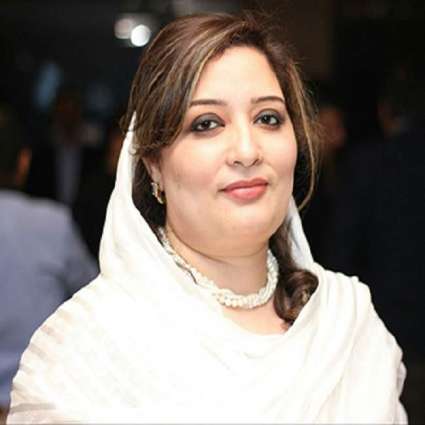By Ali Imran
ISLAMABAD: Special Assistant to the Prime Minister (SAPM) and Convener Parliamentary Taskforce on Sustainable Development Goals (SDGs), Romina Khurhsid Alam on Monday said lack of gendered data hinders effective policy implementation to address climate disaster issues and inequalities.
Speaking at the consultative workshop titled “Gender Policy and Economic Development: Applying the Disaster Resilience Lens” organized by Sustainable Development Policy Institute (SDPI), in collaboration with British High Commission’s Revenue Mobilisation, Investment and Trade (REMIT) programme here, the SAPM said gender inequality was an international issue which required targeted policy interventions with a bottom-up approach.
SAPM Romina Khurshid Alam said that women being half of population were at the center of development agenda and pivotal for effectively catalyzing change. She said that collaboration and knowledge sharing could help strengthen responses to novel and evolving challenges.
She also informed that the Parliamentary Taskforce on SDGs and SDPI were collaborating to initiate a regional parliamentary consortium to overcome gender inequalities in the region and join forces on the issue.
Senior Responsible Owner (SRO), REMIT, Naghma-e-Tehniat reiterated British government’s commitment to addressing gender and climate issues.
She said that since the floods in 2022, the focus has been directed to review of policies for gendered impact analysis and address these issues.
Joint Executive Director, SDPI, Dr Vaqar Ahmed said that with higher incidence of climate disasters, current knowledge must be utilized to develop responses to sporadic climate instances. He stressed that disaster lens for a gender focused economic development should be holistic, and not be confined to a single ministry’s framework.
Chief of SDGs, Ministry of Planning Development and Special Initiative, Ali Kemal said that gender disaggregated data was already available but lack of evidence on impacts of policy actions and responses was needed. He said that care economy and financial inclusion must be targeted for rural women to address social and gender inequalities.
CEO of National Disaster Risk Management Fund (NDRMF) Bilal Anwar informed that the NDRMF now ensures gender dimension in project design and implementation which has demonstrated success. He emphasized the need for training and capacity building to sensitize partners, public and private organizations to consider gendered approach in project planning and implementation.
Secretary National Commission on the Status of Women (NCSW), Khawaja Imran Raza said that sensitivity to gender issues was at the heart of effective policy implementation. He emphasized the need for disaggregated data and sharing resources based on the inequalities for climate equity.
Gender and Social Inclusion Lead, REMIT, Gulalai Khan emphasized on the need of consolidation of efforts and data for meaningful policy making at all levels and welcomed the initiative of the SDGs focus on gender and climate at the parliamentary level through a consortium.
Head Centre for Evidence Action Research, SDPI, Dr Fareeha Armughan highlighted need for gender-specific shock responsive data and hotspot mapping for targeting investments in areas where women are highly vulnerable. She stressed that Gender Action Lab can address systematic inequalities in employment. She urged for coupling decent work with Care economy’s 3Rs “Recognize and Reduce unpaid work by women and Redistribution of gender roles ” to reduce women’s vulnerability.
Prof Gary Dymski, from Leeds University, UK in his presentation highlighted that gender inequality was a multi-scalar issue exacerbated by crisis. He suggested conducting case studies at local and urban levels to strategize resilient socio-economic development of women.



